Lying Hillsbrough commander asked: Were you promoted because you were a Mason?
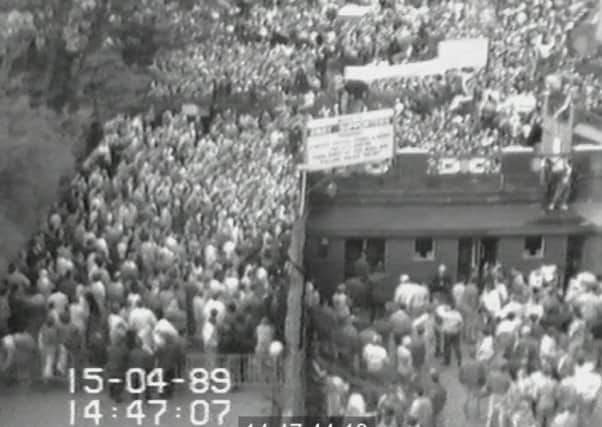

Former Chief Superintendent David Duckenfield also faced suggestions that his position as “Worshipful Master” in the Freemasons influenced his elevation through police ranks.
Mr Duckenfield told an inquest into the deaths of 96 Liverpool supporters that there had been “no conspiracy” to hide the truth about senior officers’ failings.
Advertisement
Hide AdAdvertisement
Hide AdGiving evidence for a third day to an inquest jury in Warrington, Mr Duckenfield said he could not explain his decision not to admit to Football Association Chief Executive Graham Kelly that he had authorised an exit gate to be opened, allowing around 2,000 fans into already overcrowded pens.
The 70-year-old former senior officer was watched by around 150 relatives of the victims, who sat listening to charged exchanges as the witness was questioned closely about his account of events on the day of the disaster.
Mr Duckenfield yesterday apologised unreservedly to the families of the victims after admitting a “terrible lie” and misleading others minutes after the disaster unfolded on April 15, 1989.
Answering questions by Rajiv Menon QC, representing the families of 75 Hillsborough victims, Mr Duckenfield said that at the time he spoke to Mr Kelly in the police control box, he was concentrating on mounting a rescue operation.
Advertisement
Hide AdAdvertisement
Hide AdMr Menon put it to Mr Duckenfield that there had been a “false narrative” after the disaster which sought to blame Liverpool fans for what had happened and conceal the truth about police failings.
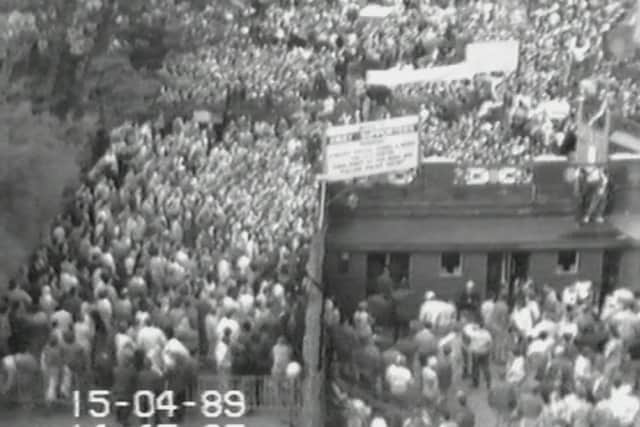

After pausing to consider his answer, Mr Duckenfield replied: “I disagree. There was no conspiracy as far as I am concerned.”
Rejecting claims that he suspected there were fatalities by the time he spoke to Mr Kelly, Mr Duckenfield added: “I don’t think I was involved in any cover-up whatsoever.
“My main objective was a rescue operation and to do the very best I could for all concerned. It was chaotic, hectic, stressful.”
Advertisement
Hide AdAdvertisement
Hide AdAfter claiming that no one in the court room who would understand the position he found himself in, Mr Duckenfield was asked why he had concealed the truth from Mr Kelly.
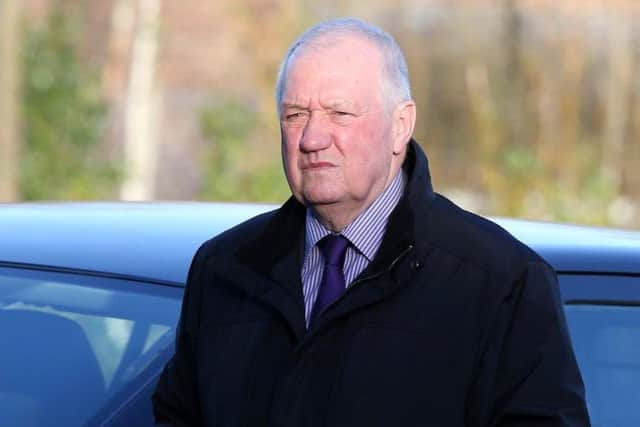

“Sir, I said yesterday, I don’t know,” Mr Duckenfield responded.
Mr Menon then said to the former officer: “That’s not the way that a competent match commander behaves, is it Mr Duckenfield, lying to the chief executive of the Football Association when people are dying on the pitch feet away?”
Mr Duckenfield answered: “Sir, under normal circumstances, as I have said, outside in the street or in an office, it is not the normal way you would expect.
Advertisement
Hide AdAdvertisement
Hide Ad“But we are not talking about normal circumstances, we are talking about a massive tragedy and me doing my best under very difficult circumstances.”
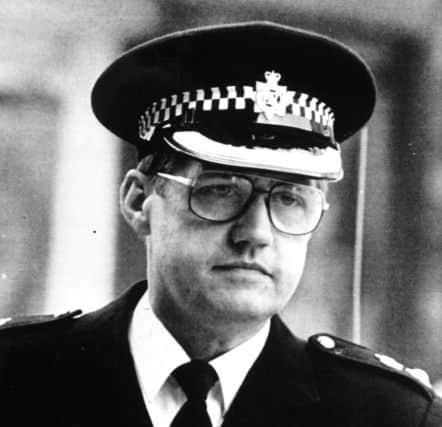

It was then put to Mr Duckenfield that he had made a catastrophic mistake in failing to close off a leading tunnel underneath Hillsborough’s West Stand to the Leppings Lane terracing.
Mr Duckenfield told Mr Menon he had admitted his failings to the inquest and had always been “honest and frank” about his conversation with Mr Kelly.
Asked if he had always been consistent in his account of what he said in the control box, the 70-year-old said: “It may be that my recollections over 26 years, or what I have said about Mr Kelly, may vary, and, dare I say it, understandably.”
Advertisement
Hide AdAdvertisement
Hide AdIn further questioning Mr Menon told the court Mr Duckenfield had now accepted he lacked the necessary experience and knowledge to do the job of match commander.
He continued: “I want to explore what reasons, independent of merit, that resulted in your promotion to chief superintendent and commander of F Division.
“Mr Duckenfield, were you in April 1989, a Freemason?”
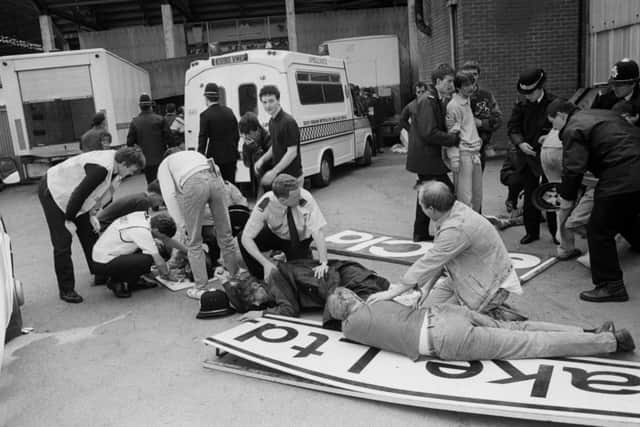

“I was sir,” he replied.
Mr Duckenfield went on to say he had joined the Freemasons in 1975, had been part of the organisation for 14 years at the time of the Hillsborough disaster and the year after was made head of his local lodge and called a Worshipful Master.
He said he did not know whether the chief constable of his force or other senior officers were in the masons because it was not seen as “acceptable” to be a senior policeman and a Freemason.
Advertisement
Hide AdAdvertisement
Hide AdMr Menon asked if the witness’s promotion to chief superintendent in March 1989, shortly before the match, was anything to do with his membership of the masons.
Mr Duckenfield replied: “I would not know but I would hope not. Nobody ever spoke to me about it.”
Mr Duckenfield, facing hours of close questioning, denied that his memory only faded when it “suited him”. And there were audible groans from relatives of the 96 when he said he suffered post traumatic stress disorder.
And while he accepted his mistakes contributed to the tragedy he said he did not “come clean” for 26 years because he was, “in denial” and maintained “many people” contributed to the disaster.
Advertisement
Hide AdAdvertisement
Hide AdMr Duckenfield admitted at the inquests on Wednesday that he was wrong to open exit gates allowing thousands of extra fans into already packed terraces and not taking action to block a tunnel to prevent the crush on the central pens.
Mr Duckenfield gave the order to open Gate C at 2.52pm allowing an estimated 2,000 fans in. Many headed straight for a tunnel leading directly to the already packed central pens behind the goal.
Ninety-six Liverpool fans died in the ensuing crush minutes later on the Leppings Lane terrace of Sheffield’s Hillsborough ground as the FA Cup semi-final against Nottingham Forest kicked off on April 15 1989.
Mr Menon asked the witness after admitting mistakes as the top police officer at the worst sporting disaster in British football history, why it had taken him so long to admit it.
Advertisement
Hide AdAdvertisement
Hide AdMr Duckenfield said: “For a period of time, I ask for no pity, no sympathy because my difficulties do not compare to those of the families, I was possibly in denial and I never found a venue or opportunity where I could meet someone and speak to them, honestly and openly and assured that my thoughts and feelings would be reported fairly and yesterday this court gave me the opportunity to sit here and apologise fully for the first time without fear of anybody misrepresenting what I was saying.”
Mr Menon said if the families had not pursued, a “courageous and relentless” campaign resulting in these new inquests, the truth would not be known.
Mr Duckenfield said out of “respect for the dignity of the families and the deceased”, he had not spoken about his responsibility for the disaster before.
But Mr Menon said some relatives of the deceased were now themselves dead, and asked if the witness understood how “upsetting and infuriating” to hear his words now, which were “too little, too late”.
Advertisement
Hide AdAdvertisement
Hide Ad“Sir, I can accept that some will have that point of view,” Mr Duckenfield replied.
Mr Menon continued: “Do you accept these mistakes led to overcrowding, crushing, injury and deaths in the central pens?”
Mr Duckenfield replied: “Today sir, 26 years on, and with hindsight, the mistakes I made that day were a contributory factor.”
He added: “I did my best under very trying circumstances. Sadly, my best was not good enough.”
Advertisement
Hide AdAdvertisement
Hide AdThe witness has told the jury he was a “brand new” chief superintendent with very limited experience of policing football matches.
Mr Menon asked if, as match commander, he was simply incompetent.
“Sir I will leave it to others to make that decision based on the evidence,” the witness replied.
Mr Menon continued: “Your negligence caused disaster and the deaths of 96 Liverpool fans, didn’t it?”
Advertisement
Hide AdAdvertisement
Hide AdMr Duckenfield replied: “I would not use the word negligence. Mistake, oversight. Sir, I did not foresee the consequence.”
Mr Menon said that the former officer’s failure to close the tunnel before opening the gates was a, “blunder of the first magnitude”. Mr Duckenfield replied: “Sir, I can’t deny it.”
He added: “I’m not making excuses, I have nothing to cover up, I have put my hands up and admitted my failings and I will continue to do so.”
Mr Duckenfield told jurors he “came clean” about giving the order to open the gate at about 4pm after returning to the control box from a visit to Hillsborough’s boardroom.
Advertisement
Hide AdAdvertisement
Hide AdWhilst in the boardroom - in the presence of directors from Sheffield Wednesday, Nottingham Forest and Liverpool - Mr Duckenfield again chose not to mention that he had authorised the gate to be opened.
Recalling that he had been “angry and annoyed” at being taken to the boardroom by another officer, Mr Duckenfield accepted that Mr Kelly, Sheffield Wednesday official Graham Mackrell, and FA press adviser Glen Kirton had been with the individual club directors.
Admitting that he did not tell the directors what had happened at the Leppings Lane end, Mr Duckenfield told Mr Menon: “If you wish to say that I lied by omission by not telling them about opening of the gate by me, then yes sir, you’re correct.”
After leaving the ground and travelling to South Yorkshire Police headquarters on the evening of April 15, Mr Duckenfield said he was summoned to brief Chief Constable Peter Wright.
Advertisement
Hide AdAdvertisement
Hide AdMr Menon asked Mr Duckenfield how the chief constable had reacted when he was informed that the head of the Football Association had been lied to.
Mr Duckenfield said: “Sir, I think the best answer to that is that he was very unhappy overall.
“I remember walking into his office,” Mr Duckenfield said of his meeting with Mr Wright. “He was sat behind his desk and he wasn’t best pleased about the events.
“I just remember having related my story to him and being dismissed like a schoolboy out of the headmaster’s office.”
Advertisement
Hide AdAdvertisement
Hide AdAsserting that the events at Hillsborough posed “potentially a major public relations disaster” for South Yorkshire Police, Mr Menon said Mr Wright had then held a press conference at which he said he knew who had opened the gate but was not prepared to say who.
Mr Menon asserted that the press conference, at which it was claimed that there was nothing to connect the opening of the exit gate with crushing in the pens, had been “stage two” of a police cover-up.
“I don’t accept that I was stage one,” Mr Duckenfield countered. “But I will agree with you totally that the comments of the chief constable were not as clear as they should have been.”
The witness was asked whether it was a gradual process or a “eureka moment” when he realised he was not up to the job of match commander.
Advertisement
Hide AdAdvertisement
Hide AdMr Duckenfield replied: “I think probably I went through a period of great difficulty and I don’t know but it may have been more recent actually when that panel report (Hillsborough Independent Panel Report) was published and I had to read material because I had avoided reading material as a form of putting a wall around myself.”
Mr Menon continued: “Are you going so far to say that the disaster and deaths of 96 Liverpool fans could have been avoided if a better man for the job, to use your phrase, had been in charge?”
“Sir, that’s a question I cannot answer.”
Mr Duckenfield disputed claims that he turned down offers of advice from other senior officers, including two who were being transferred to Doncaster and Barnsley, in the days before the disaster.
Accepting that he was among a “disciplinarian wing” of senior officers within a rigidly hierarchical organisation, Mr Duckenfield said it was possible he told other “F” Division staff that the section had been badly run at a meeting a week before the FA Cup semi-final.
Advertisement
Hide AdAdvertisement
Hide AdMr Menon asked him: “Why are you turning down offers of help from experienced officers who could have advised you in preparing and planning and could have assisted you on the day itself?”
“Those offers were not made to me,” Mr Duckenfield said.
The jury heard that minutes taken at three meetings Mr Duckenfield was at in the days leading up to the game had gone missing from police records.
Mr Duckenfield said the “culture” of the 1980s meant people were “not so obsessed with writing things down” and South Yorkshire Police was a “trusting organisation” where after a meeting had been held “there was a sort of gentleman’s agreement” that what was agreed would be done.
Mr Menon next asked him about the police policy for fans of “finding your own level” - which meant it was left to fans to distribute themselves along the terrace pens.
Advertisement
Hide AdAdvertisement
Hide AdMr Duckenfield said he could not remember when he first heard about the policy, or discussing it with other senior officers.
He agreed the “primary responsibility” for the monitoring of pens to prevent overcrowding was that of the match commander in the police control box, but added that he also relied on others to keep an eye out.
He was then asked about the tactic of blocking the tunnel leading to the central pens with a line of police officers or a gate to stop overcrowding - as had been done in semi-finals in previous years in 1981 and 1988.
Mr Duckenfield said he did not know about this police tactic.
Advertisement
Hide AdAdvertisement
Hide AdMr Menon continued: “It is rather significant because you are in overall charge, so either a significant number, including senior officers, for some reason or another are not telling you or you are so disengaged or detached you are simply not learning on the job?”
Mr Duckenfield replied: “This information was not passed to me. No one told me about the Freeman tactic.”
READ MORE...